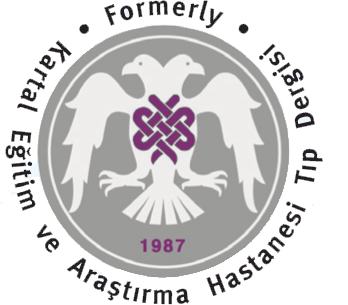THE EVALUATION OF THE IMMUN RESPONSE DUE TO HEPATITIS B VACCINES
Güler Yayli1, Doğan Erkirli1, Volkan Dündar1, Emin Karagül1Haydarpaşa Numune Hastanesi İnfeksiyon Hastalıkları ve Klinik MikrobiyolojiHealth care personnel are at increased risk of acquisition of Hepatitis B Virus, it is possible to be protected by vaccines produced against it. In this study 92 healthcare personnel with negative Hepatitis B markers were randomly divided into 2 groups. First generation recombinant Hepatitis B vaccine was administered the first group and Hepatits B vaccine was administered to the second group on the 0,1st,2nd months. Serum samples were taken from the cases on the 1st,2nd and 3rd months and were kept -20°C. Anti-HBs levels were measured by micro-ELISA. There was no statistical significance between both the geometrik mean titration (GMT) and the Anti-HBs levels of the two groups. A meaningful difference was not found in the capacity of antibody producing between the two vaccines (p>0.05). Although there wasn't a meaningful difference in the GMT levels and antibody producing capacity in both vaccines, 11% - 22% of the cases couldn't producing protective antibody levels and it is thought that antibody levels should be measured after Hepatitis B vaccination.
HEPATİT B AŞILARINA KARŞI OLUŞAN İMMUN CEVABIN DEĞERLENDİRİLMESİ
Güler Yayli1, Doğan Erkirli1, Volkan Dündar1, Emin Karagül1Haydarpaşa Numune Hastanesi İnfeksiyon Hastalıkları ve Klinik MikrobiyolojiSağlık çalışanları meslekleri nedeniyle Hepatit B Virüs bulaşım riski altındadırlar. Bu etkene kargı geliştirilen aşılar ile korunmak mümkündür. Bu çalışmada, Hepatit B Virüs marker'ları negatif bulunan 92 sağlık personeli randomize olarak iki gruba ayrılmıştır. 1. gruba birinci kuşak rekombinant, 2. gruba plazma kaynaklı Hepatit B aşısı 0., l.,2., aylarda yapılmıştır. Bireylerden 1., 2., 3., aylarda serum örnekleri alınarak -20°C de saklanmıştır. Anti-HBs düzeyleri mikro-ELISA yöntemi ile çalışılmıştır. Anti-HBs geometrik ortalama titrasyonu (GMT) değerleri 1. ve 2. grupta ayrı ayrı incelendiğinde iki grup arasında GMT değerleri ve antikor oluşturma yönünden anlamlı bir fark bulunmamıştır. İki aşı arasında 3 kez aşılama sonrası GMT değerleri ve koruyucu düzeyde antikor oluşturma yönünden anlamlı bir fark bulunamamakla birlikte olguların %11-22 sinde koruyucu düzeyde antikor oluşmaması aşılama sonrası antikor düzeylerinin kontrolü gerekliliğim düşündürdü.
Manuscript Language: Turkish




















